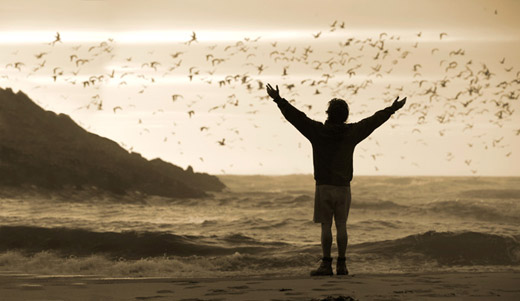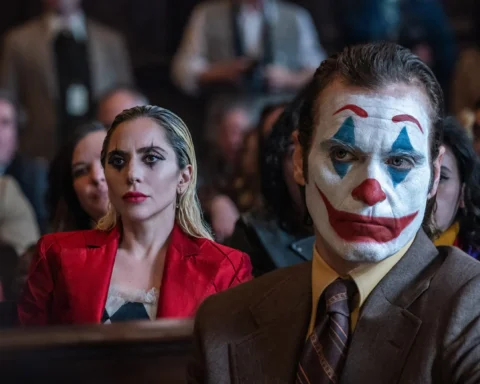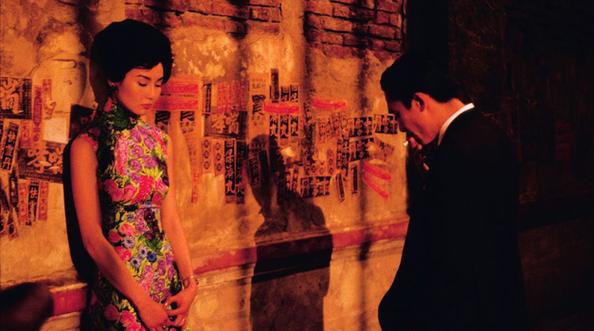
The story of Into the wild is so outrageous that it couldn’t be anything else, but true. In 1990, twenty year-old Christopher McCandless (Emile Hirsch) graduated from Emory University with straight A’s. Instead of going into Harvard law or venturing into the world to become a man of success, he chose the road less traveled. A self-confessed disciple of Thoreau, Tolstoy and Jack London, he wished to escape the lies of civilization. He planned to live a solitary life in the midst of the ‘most ancient of human conditions’. So, he donated his college fund of $24000 to charity, burnt up all his credit and ID cards, abandoned his car in the middle of the desert and set out on foot to Alaska. Where he met a tragic end.
Now, let me digress a bit to prepare the background for my somewhat biased review. It’s been hardly two weeks since my convocation. During my college education, I often wondered why I am doing whatever I was doing. In centuries past, it was called earning a livelihood or even more simply, putting bread on the table. Now we call it a career. It is the sole purpose of our existence. It is the key to that elusive entity called ‘happiness’. I made the mistake of expressing some of these views in front of my parents much to their consternation. I reassured them that I would never ever dream of harboring any crazy dreams. After all I am a responsible young man. I am gutless enough to be so.
But Chris wasn’t. Many might see him as a naive impractical idealist, with his head up his ass. Alexander Supertramp…could he have picked a more pretentious pseudonym for his journal. He caused a lot of pain to his family. Grief and guilt ate away at his parents’ hearts. He had no experience of outdoor living. He finally starved to death, all alone in the Alaskan wilderness. But at a personal level I can’t help, but admire his conviction. And it is this purity and strength of thought, which comes through in this obvious work of passion from Sean Penn.
On his way Chris meets Jan and Rainey, a hippie couple, straight from the sixties. He works at the grain elevator of tough guy, Wayne, in South Dakota. He gets some money along with a bit of worldly advice. He runs into the petite 16-year old Tracy, who develops a crush on him. He touches all these broken lives in his own small way. As played by Emile Hirsch, his earnestness makes even the borrowed aphorisms sound like words of wisdom.
Just before he enters Alaska he meets Ron Franz, an old retired army-man. He develops a deep fondness for Chris and is concerned for his safety. Ron’s is probably the most well etched character amongst the lot. His conventionality makes his character utterly believable.
While Eddie Vedder’s melancholic road music adds to the feel, Eric Gautier, the cinematographer (who previously worked on ‘The motorcycle diaries’) works wonders with the majestic landscapes. And Emile Hirsch has to fight to hold his own…with his image frequently framed against nature in all its glory. He gives a brave performance, which just got lost in a year of several great performances. In the final scenes, he is emaciated and sick. He spends his last days in the ‘magic bus’, a rundown vehicle he had discovered. He lies, slowly dying, on a tattered mattress, still reading Thoreau and Pasternak.

The movie follows a non-linear chapter structure with the last ten weeks inter-cutting the previous two years. Thus, the director creates a sense of inexorable progress towards doom. He also takes a marginally romantic view of Chris’s exploits. But he doesn’t shy away from portraying the graphic details of his sad fate, which incorporates much-needed grace into the power of the movie.
Alex Supertramp lived life on his own terms. He paid a heavy price for it. And his parents and sister also suffered for it. You can choose to worship him as a hero or despise his foolishness. But you cannot deny that Chris was prepared to live his beliefs unlike most. This is what makes his story a stirring one and one worth watching.





